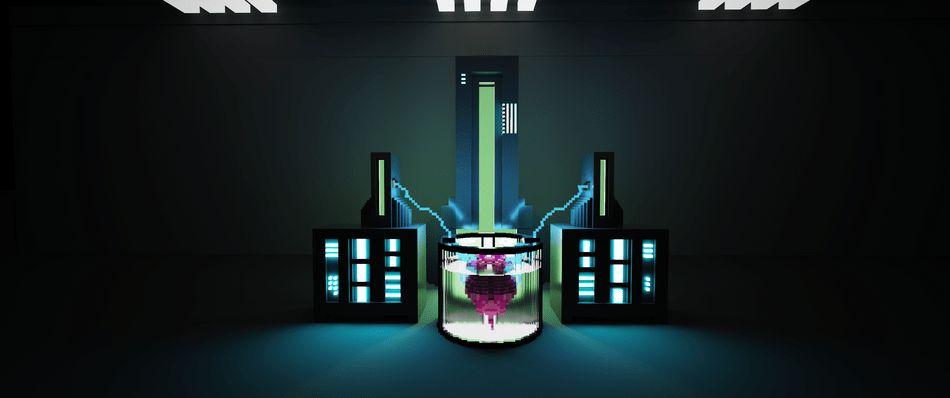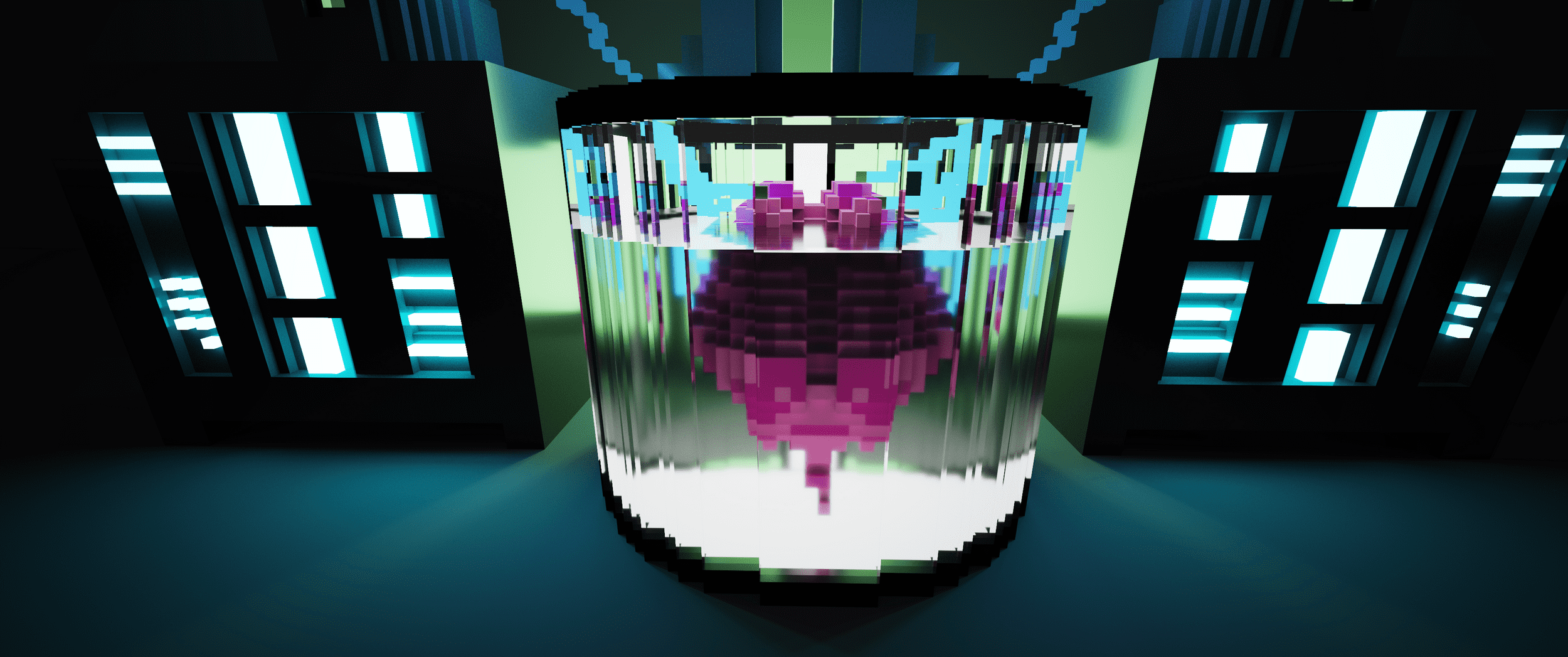The Brain in the Vat
There are lots of things we might be uncertain about, but one thing is for sure, we know we are real and the world is real. Right? Well, it might be more difficult to prove that you are not just a disembodied brain floating in a vat attached to some a computer than you might think; and if you can't be sure about that, what can you be sure of?
Messages for the brain
Everything that you think you are experiencing is being experienced by your brain. When you touch something, it’s your brain that notices the sensation, when you see something, it’s your brain that's turning that visual information into the idea of vision. Whilst your fingers might be great at sensing the things you touch, and your eyes are great at responding to light, after they have done their job they need to send messages to the brain for them to be experienced. We might think we have a direct awareness of reality, but that's only because we assume that the information that is reaching our brain is coming from our body in response to real external events.
Lets look at an example. Imagine you are looking at a duck swimming on a pond. The light in your environment is bouncing off the duck and the pond and is then entering your eyes. This light stimulates the cells at the back of your eye, and causes them to send a signal to your brain through the optic nerve. Your brain then notices these signals and constructs a mental image of what you can see based on those signals.
What if the signals were not coming from your eyes at all, what if the signals were being sent to your brain by a computer, could you know the difference? Assuming the same signals were being sent to your brain by the computer that would have been sent by your eyes there would be no difference in your experience. To you it would look like you could see the duck and the pond as if they were there and being seen by your eyes. Now let’s imagine all your senses were being manipulated in this way. Your sense of touch, taste, hearing, temperature, smell, pain, pleasure, orientation and movement, hunger, everything, all being sent to your brain, not by your various body parts but by a computer. Could you know the difference between the computer simulation and reality? Is there any way you could know that you are not right now a brain in a vat, attached to a computer living in a simulated reality.

Enter the Matrix
You may very well recognise this problem as explored in the popular 1999 science fiction movie The Matrix. Neo and indeed most of humanity are living in vats, wired up to machines that place them in a simulated reality. To those who are inside the reality the machines have created is indistinguishable from an actual external reality.
Enter the Cartesian demon
The idea has been around much longer than you might think, in 1641 René Descartes in his "First Meditation", suggested the idea of an evil demon. This demon had incredible power and "employed all his energies in order to deceive me.". This demon would place Descartes under a complete illusion of reality.
I shall think that the sky, the air, the earth, colours, shapes, sounds and all external things are merely the delusions of dreams which he has devised to ensnare my judgement. I shall consider myself as not having hands or eyes, or flesh, or blood or senses, but as falsely believing that I have all these things.
Enter Plato's Cave
In his work The Republic written around 375 BC, Plato, through the character of Socrates, asks Glaucon to imagine a cave where people have been imprisoned their whole lives. These prisoners are restrained so that they can't move at all and must always face the wall of the cave, unable to see anything else. Through means of a fire and puppets, shadows a cast upon the wall of the cave, and the voices of the performers echo off the wall, such that the prisoners believe these sounds come from the shadows. As the prisoners have access to no other reality, the shadows are reality to the prisoners. They do not realize that what they see are shadows of objects in front of a fire, much less that these puppets are inspired by real things outside the cave. Plato asks what if the reality we think we are perceiving is in fact just another shadow puppet show? How could we know?
Conclusion
Weather is The Brain in a Vat, the Matrix, Descartes daemon or Plato's cave; these ideas teach us we can't be certain about anything based on our experience. There is no test or experiment we could employ that could prove to us that we are not in one of these situations. They are all possible. This sort of thinking forms the foundation of sceptical thought; and one of the principal reasons certainty on any position is not an option.
